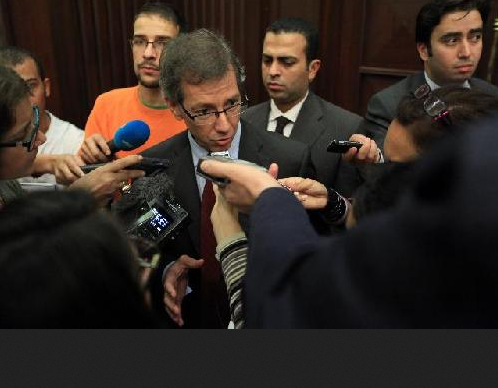After weeks of discussions with all the parties and in light of the deteriorating military situation that threatens with further escalation as progress is made in the political dialogue, Special Representative of the Secretary-General for Libya Bernardino Leon visited both Tobruk and Tripoli where he presented some ideas to expedite the talks.
These ideas are first and foremost Libyan, formulated after wide discussions with the parties. They address the concerns of all sides while at the same time all of the sides are asked to make concessions.
Libya is risking widespread confrontation and deeper division in which terrorism and its expansion will become a serious threat to the country and the region. Libya cannot afford to wait any longer before there is a settlement that could restore security and stability and end the suffering of the people.
These ideas are not intended to provide concrete details or present a final solution to Libya's political crisis and military conflict but they form the basis from which the parties can work on.
The guiding principles will be respect for the elections and its results, respect for the legitimacy and for the State institutions, including the judiciary and its decisions and all other institutions, as well as adhering to the 17 February revolution's principles of democracy, human rights and the building of a state based on the rule of law.
The structure of this proposed solution is as follows:
- A unity Government headed by a president, and a Presidential Council composed of independent personalities not belonging to any party or affiliated with any group, and are acceptable to all parties and by all Libyans. The main members of the Presidential Council will be the president and his two deputies.
- The House of Representatives as a legislative body representing all Libyans under the full application of principles of legitimacy and inclusion.
- A High State Council inspired by similar institutions existing in a number of countries. A fundamental institution in the governance of the State
- Constitutional Drafting Assembly.
A mechanism of cooperation between these institutions will be agreed on to achieve consensus at this critical stage.
- National Security Council.
- Municipalities Council.
(The last two proposed bodies will be shaped in the second stage of the talks).
The life of all these bodies will be extended during a new transitional period whose duration will be agreed on by the parties and will end with new elections that will come after the approval of the constitution and referendum.
An end to Libya's conflict is in the hands of the Libyans themselves. The responsibility falls on all the parties to adopt a constructive and flexible approach when addressing these ideas, bearing in mind that these could only be a basis for a solution that could be negotiated in shape and form.
(Source: UNSMIL)





